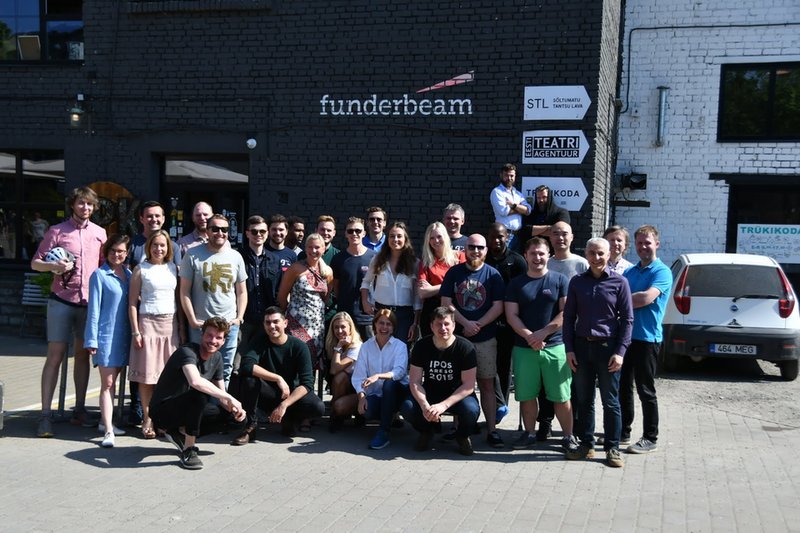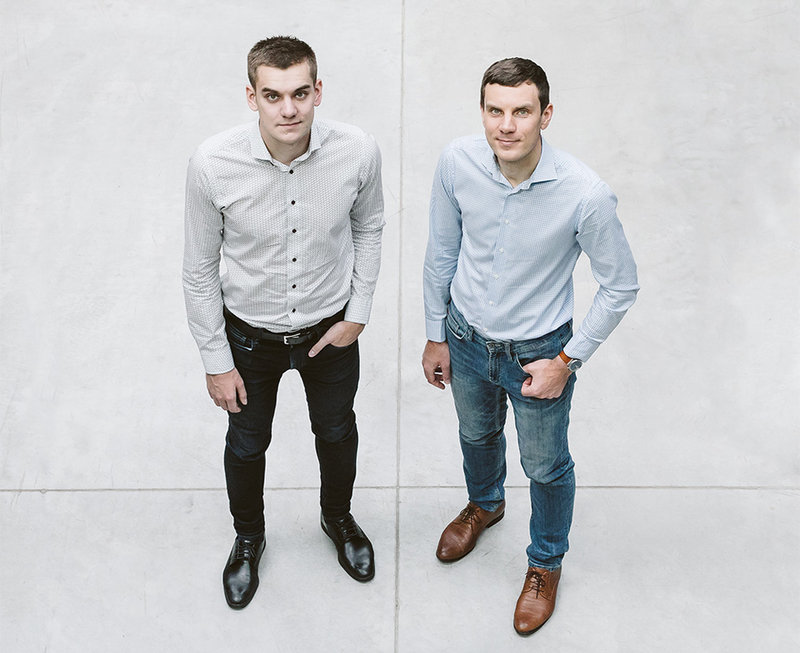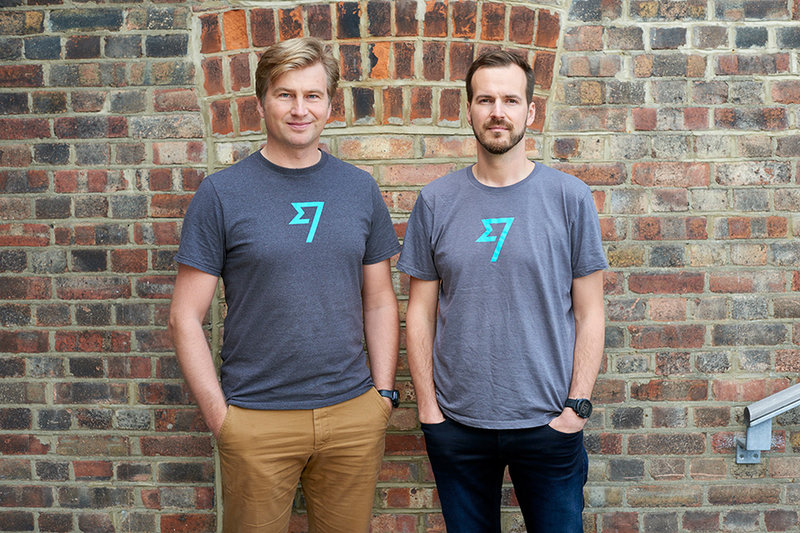Startups
Five Estonian Startups to Watch
Estonia is a hotspot for technology innovation. In March, Robert Scammell visited Tallinn, Estonia, and spoke with some of the startups disrupting security, finance, travel, funding and software testing
In 2005 the first Estonian tech heavyweight, Skype was sold to eBay for $2.6bn. At the time, it was the largest exit in European tech and made its founders – dubbed the ‘Skype mafia’ – very wealthy overnight.
That sale was the catalyst for a thriving technology ecosystem in Estonia, with many of the Skype Mafia reinvesting in new ventures. Today, there are now more than 1,000 startups in Estonia and many can trace their roots back to Skype, be it directly or indirectly.
Here are five Estonian startups striving to disrupt their respective markets and become the country’s next Skype.
Veriff

Estonia is a leader in digital identities, so it seems natural that an Estonian startup is tackling the problem of online ID verification. Founded in 2015, Veriff has created software that analyses documents held up to a webcam or camera, spotting forgeries and ensuring the images match.
It can detect and verify 7,400 types of documents and claims a 95% pass rate. Dubbed the “Stripe of online identity verification”, Veriff went through Y Combinator’s W18 accelerator. The US investor outfit boasts the likes of Airbnb, Dropbox and Coinbase among its previous members.
“We want to go to Mount Everest, to the top of it. We can see the top but at the moment we’re focusing on how to get to the next base camp.”
Its technology is used by fintech companies, shared economy providers, smart city solutions and online marketplaces. In 2017 it brought in 95% of its revenue from inside Estonia but has since expanded its customer base; in 2019, 99% came from abroad. To date, it has received $8.3m in funding.
Its moonshot goal is to create a single global identity for everyone on Earth by 2025.
“We want to go to Mount Everest, to the top of it,” says Janer Gorohhov, COO and co-founder of Veriff, of his company’s ambitions. “We can see the top but at the moment we’re focusing on how to get to the next base camp.”
Testlio

Software is eating the world, but it needs to be free of bugs while it feasts. Software testing startup Testlio brings together a community of software engineers that test applications.
Founded by now husband and wife Kristel and Marko Kruustük in 2012, the startup has carried out more than 6.5 million tests and found more than 350,000 significant software flaws.
“This kind of model created an environment where testers were not working together, but instead competing with each other.”
Kristel Kruustük became frustrated at how other crowdtesting platforms focused on quantity, not quality, by paying testers per bug found.
“This kind of model created an environment where testers were not working together, but instead competing with each other,” she says.
She found that testers would “report all the low hanging fruit”, instead of spending the time to be more thorough.
Testlio instead pays its testers an hourly rate and screens applicants through a series of online tests. Fewer than 3% of applications are successful. Once accepted, testers are put into teams to specialise, covering iOS, Android, web apps and desktop across more than 1,200 types of device.
It has raised $7m in funding to date and been profitable since 2019, with a turnover of €966,200 in Q4 of 2019. It counts the likes of American Express, CBS and Microsoft among its customers.
Funderbeam

For the past ten years the tech marketplace has been awash with cheap capital, but investments have been dominated by large venture capital firms such as Japan’s Softbank. Funderbeam is offering an alternative approach, giving retail investors the chance to invest in startups before they go public.
Its marketplace allows individuals to invest as little as €100 in just a couple of clicks. Shares are kept in custody of the marketplace, which means that if the company goes public investors are offered to buy out their shares or they can exchange their investment into public shares.
“Our dream is that when companies are trading on our marketplace, they don’t need to go for the IPOs any more.”
The idea is to democratise investing at a time when companies are taking much longer to IPO. For startups, it’s an additional way to raise cash.
“But our dream is that when companies are trading on our marketplace, they don’t need to go for the IPOs any more because the liquidity’s there,” says Kaidi Ruusalepp, CEO and co-founder.
Funderbeam’s dashboard provides company information, such as quarterly reports, that inform trades. Prices are set by the buyer and seller. By cutting out brokers, it is able to reduce costs.
There have been more than 23,000 trades on its platforms so far and it has attracted investors from more than 128 countries since it was founded in 2013.
Bolt

The ride-hailing market has steadily become more crowded since Uber launched in 2009. Markus Villig founded ride-hailing firm Bolt in 2013, then known as Taxify, when he was 19 years old after being frustrated with the taxi-booking experience in Tallinn.
Bolt now has more than 30 million users across 35 countries in Europe and Africa. It has expanded into food deliveries and logistics and is growing its electric scooter fleet.
“If you offer a similar service, but a much better value proposition, then over time you start to grow.”
While Uber has first mover advantage in the ride-hailing market, Villig believes that the $26bn raised by Uber before it went public made it too dependant on investment. To date, Bolt has raised €250m.
Bolt is aiming to be more streamlined than its rivals so that it can undercut on prices. In most countries Bolt takes 15% commission on fares, while Uber takes 25%.
“If you offer a similar service, but a much better value proposition, then over time you start to grow,” says Villig.
While it is not yet profitable, it lost €61m on gross bookings of about €1bn 2019 and has created a clearer roadmap to profitability.
“One of the benefits of being frugal is that we don’t need to raise that much funding to grow,” adds Villig. “So more than two-thirds of the countries [where Bolt is] running today are already profitable in themselves.”
Transferwise

Transferwise is based in Britain, but it was founded by two Estonians – Taavet Hinrikus and Kristo Käärmann – after they realised they were paying large fees to send money between Estonia and the UK.
They made an arrangement where Hinrikus, Skype’s first employee, paid his euros into Käärman’s Estonian account so he could pay his mortgage without having to convert pounds to euros. Meanwhile Käärmann paid his pounds into Hinrikus’ UK bank account.
“Born out of frustration for the banks and high exchange rates.”
That same principle underpins Transferwise’s business model. Instead of directing overseas payments directly to the recipients, it matches transfer amounts with other Transferwise users wanting to send cash. This allows it to avoid currency conversion and transfer fees, with Transferwise charging a nominal fee.
It was “born out of frustration for the banks and high exchange rates,” says Lars Trunin, head of UK product at Transferwise.
Founded in 2011, it received approval from the UK’s financial regulator in 2012. The fintech has scooped up more than $772m in funding to date. While most of its customers are individuals, a growing number of its customers are SMEs. It has partnerships with around ten banks, including challenger banks such as Monzo.
Cover image courtesy of Tõnu Runnel
Back to top